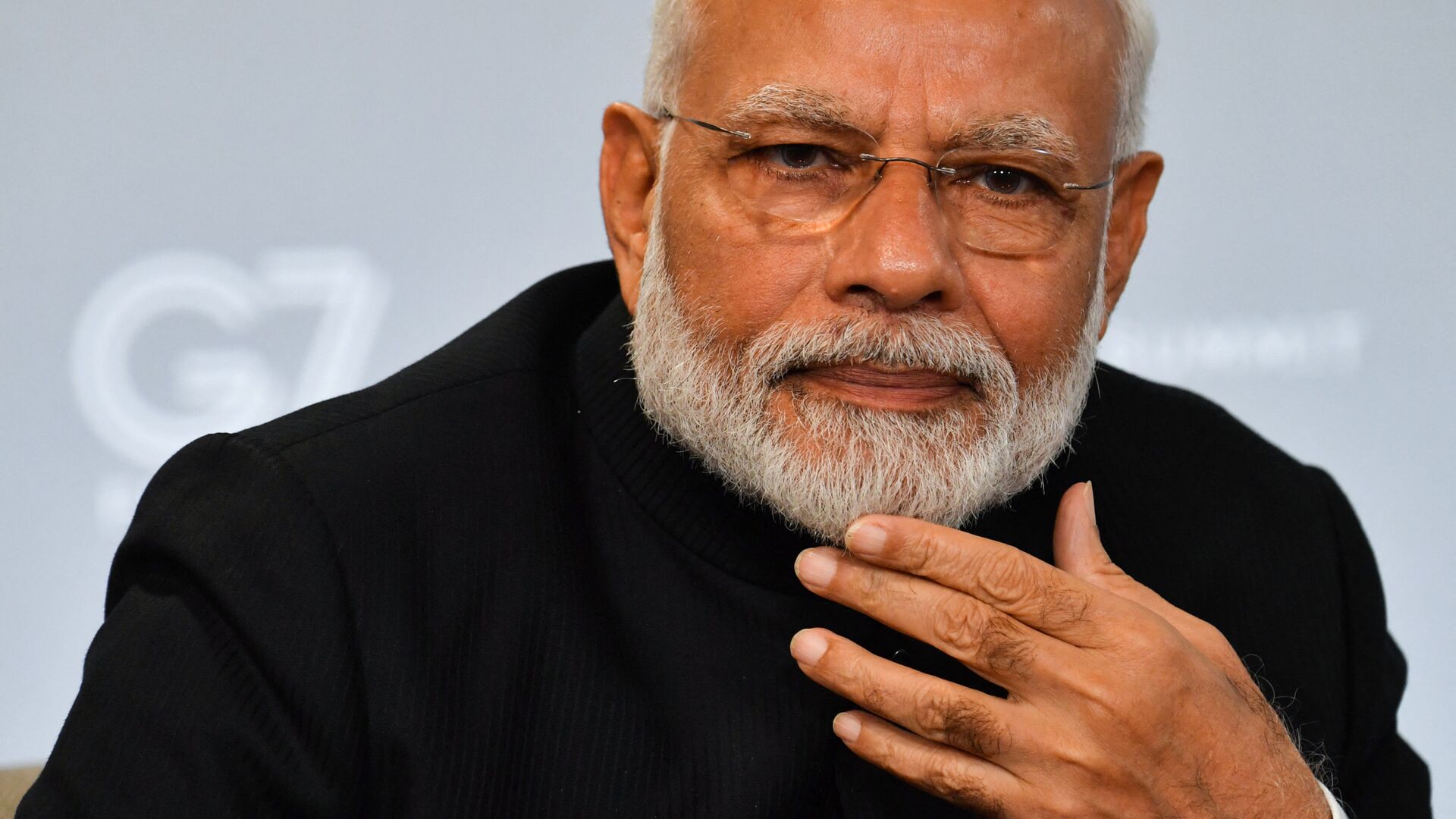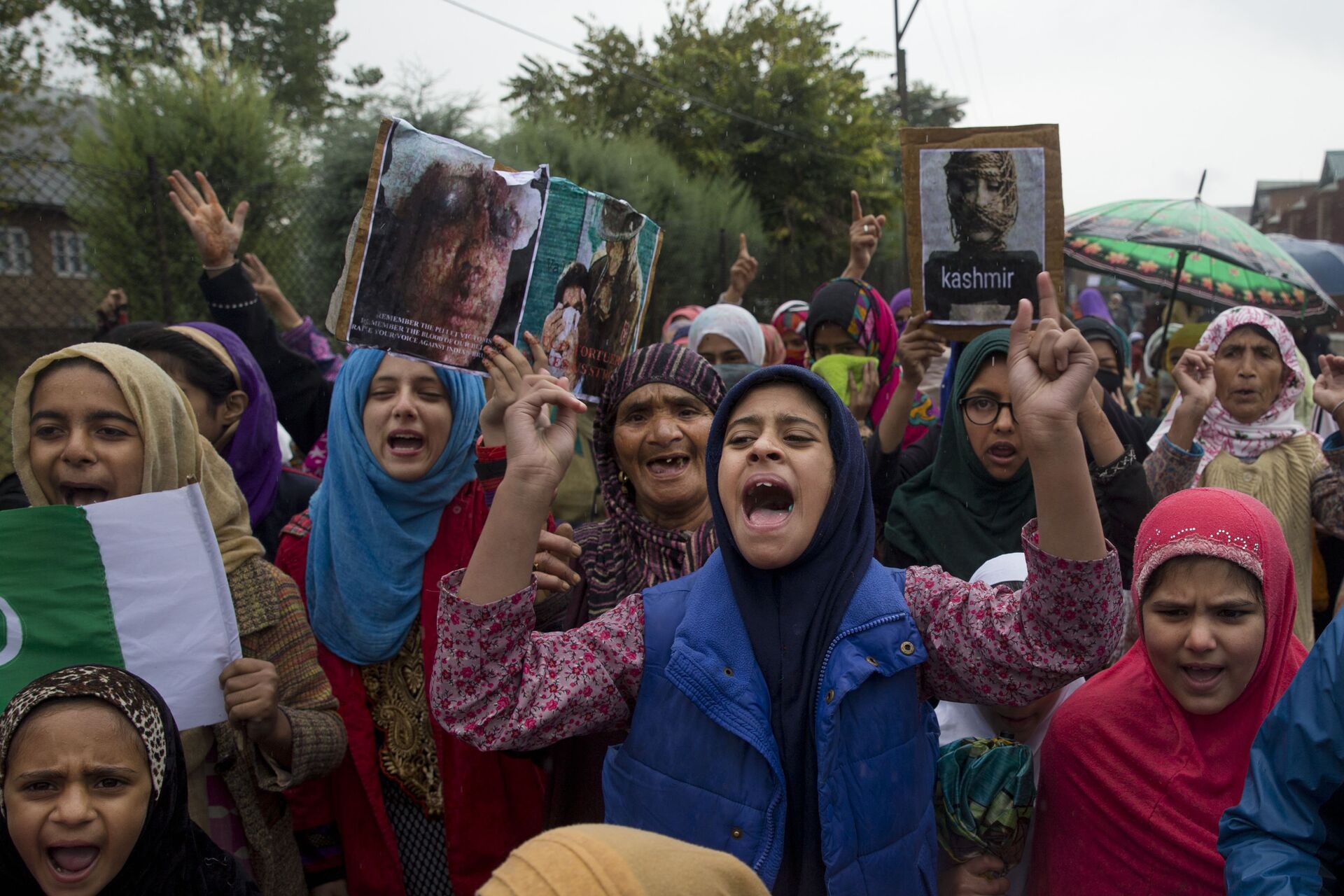Ex-Envoy to Delhi: ‘India Read the Afghan Situation Wrong Due to PM Modi’s Obsession With Pakistan'
13:58 GMT 17.08.2021 (Updated: 18:01 GMT 08.12.2022)

© AFP 2023 / NICHOLAS KAMM
Subscribe
Islamabad claims that India has used Afghan soil during the reign of Ashraf Ghani to train terrorist groups to launch attacks inside Pakistan. India now worries that Islamabad could use Afghan territory under the Taliban* regime to train terror groups such as Lashkar-e-Taiba (LeT), which have been known for carrying out attacks in India.
As India grapples to save its strategic and economic interests in Afghanistan amid the takeover of the nation by the Taliban, former Pakistani Foreign Secretary Salman Bashir told Sputnik that New Delhi had “read the unfolding situation in Afghanistan wrong” mainly because of Prime Minister Narendra Modi’s “obsession” with Islamabad.
“The Taliban always said that their struggle is against foreign occupation. It was not against India. But if India supported a regime foisted by the outsiders then the Taliban takeover of Afghanistan may be construed by Prime Minister Modi as a setback for India. It is India's judgment call”, said Bashir, who has formerly also served as Pakistan’s high commissioner to Delhi.
Until the taking over of Kabul this week, India, Afghanistan’s largest regional donor, had consistently thrown its weight behind an “independent, sovereign, democratic and stable” Afghanistan, as articulated by Indian Foreign Minister Subrahmanyam Jaishankar on several occasions.
The Taliban has rejected Delhi’s statements as “interference” in Afghanistan’s internal affairs.
“The speed of the Taliban takeover could be attributed to the support of the people or a popular uprising against a corrupt order”, states Bashir, who agrees with Islamabad’s views that democracy was imposed on the Afghan population by the US.
The Pakistani diplomat’s remarks come against the backdrop of India all but ending its diplomatic presence in Afghanistan, pulling out its Ambassador to Kabul Rudrendra Tandon as well as 120 other officials on board an Indian Air Force (IAF) C-17 Globemaster aircraft on Tuesday. Last week, India evacuated its diplomatic staff from its consulate in the northern city of Mazar-i-Sharif, a month after drawing down its presence in the southern city of Kandahar due to “intense fighting”, as per the Indian Foreign Ministry.
Just over 300 Indians are believed to be present in Afghanistan now, with nearly all of them waiting for evacuation to their native country once Afghan airspace opens up again for civilian aircraft. Two of India’s most prestigious projects in Afghanistan — the India-Afghanistan Friendship Dam in Herat province as well as the Afghan parliament building in Kabul — have fallen to the Taliban.
‘Modi’s Obsession With Pakistan’
The former Pakistani foreign secretary says that Delhi could have somewhat salvaged its interests in Afghanistan had Prime Minister Modi not been “obsessed” with Pakistan.
“India's obsession with Pakistan occludes reality and intensifies the proclivities to conjure fiction for political opportunism”, says Bashir.
The reference is to the Indian government’s refusal to hold dialogue with Islamabad until it fixed accountability for terror strikes by an allegedly Pakistan-backed militant group in 2019 (when the terror group Jaish-e-Mohammad targeted an Indian paramilitary convoy in Jammu and Kashmir’s Pulwama) and a militant strike on an Indian Air Force base in Uri near the border.
In August 2019, Pakistan recalled its top diplomat posted in Delhi over the latter’s decision to scrap the semi-autonomous status of Jammu and Kashmir, an erstwhile state controlled by India but claimed by Islamabad.
Pakistan’s Prime Minister Imran Khan has said that he would oppose New Delhi’s involvement in Afghanistan until it restored Jammu and Kashmir’s semi-autonomous status, a demand rejected by Delhi.

Kashmiris shout slogans during a protest after Friday prayers against the abrogation of article 370, on the outskirts of Srinagar, Indian controlled Kashmir, Friday, Oct. 4, 2019.
© AP Photo / Dar Yasin
The friction between Pakistan and India yet again came to fore against the backdrop of the deteriorating security situation in Kabul, after Islamabad accused Delhi of denying it an opportunity to present its views at a United Nations Security Council (UNSC) debate on Afghanistan. India, a non-permanent UNSC member, currently holds the chair of the UN grouping.
The Pakistani diplomat’s assessment of India’s “flawed” policy in Afghanistan is echoed by some of his Indian counterparts as well, who agree that Delhi was “blindsided” by its obsession to “defeat” Pakistan.
Fitting tribute to Indian diplomacy! Also, true reflection Afghan people's contempt for India's bullshitting about 'legitimacy aspect' of Ghani. Indian policymakers were blindsided by obsession to 'defeat' Pakistan on Afghan soil & in the process they took their eyes off the ball https://t.co/0F2MQLuODz
— M. K. Bhadrakumar (@BhadraPunchline) August 16, 2021
Several Indian commentators have also expressed criticism of Modi over India’s failed Afghan policy.
Brahma Chellaney, a prominent Indian strategic affairs expert, argues that the Indian government has "betrayed" its friends in Afghanistan due to "pressure" exerted by the US.
"By signing the Doha Peace Deal, the US threw the Afghan government under the bus and got in bed with the Taliban", Chellaney said during an online discussion.
The Indian expert now questions the benefits of India sending its delegates to Qatar and “implicitly approving” of the Doha Peace Deal between the US and the Taliban last year.
For Bashir, though, India’s rivalry with Pakistan has cost it more than its proximity to the US.
“We all relied on the US. Pakistan even cooperated with them on counter-terrorism. India's problem is its impulsive rivalry with Pakistan, which has coloured its better judgment and caused it many setbacks in the strategic realm”, argues the Pakistani diplomat.
*The Taliban is a terrorist organisation outlawed in Russia and many other countries



